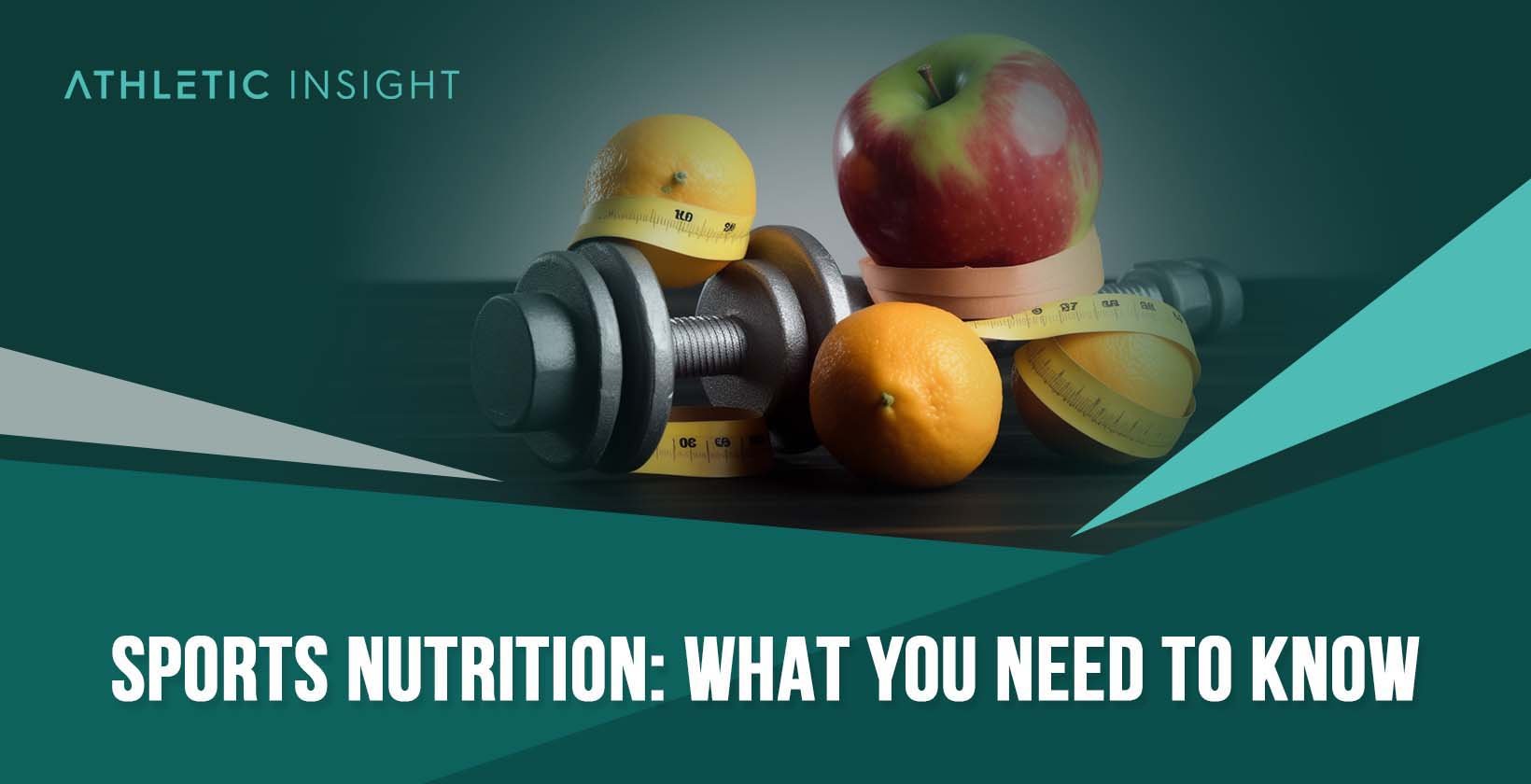Sports nutrition is an essential component in optimizing an athlete’s performance and overall health. A comprehensive understanding of the science behind proper nutrition can help athletes maximize their potential, recover more quickly from intense training sessions, and maintain a healthy lifestyle. This article delves into the intricacies of sports nutrition and how it can impact athletic success.
What is Sports Nutrition?
Sports nutrition is the specialized branch of nutritional science that focuses on understanding and addressing the unique dietary needs of athletes and physically active individuals. It encompasses the study of optimal nutrient intake, timing, and supplementation to fuel performance, promote recovery, and support overall health and well-being.

What is the other term for Sports Nutrition?
Another term for sports nutrition is “sports and exercise nutrition.” This designation emphasizes the dual nature of the field, catering to both competitive athletes and those engaging in regular physical activity for fitness or leisure. It acknowledges the shared dietary principles and strategies that can benefit individuals across a range of physical pursuits.
What is the importance of Sports Nutrition?
Sports nutrition is crucial for maximizing an athlete’s potential by ensuring proper nourishment and energy availability. Adequate nutrition supports physiological adaptations, enhances performance, reduces the risk of injury, and aids in recovery. It also contributes to overall well-being and long-term health, allowing athletes to maintain peak performance throughout their careers and beyond.
What are the principles of Sports Nutrition?
The key principles of sports nutrition include carbohydrate intake or fueling, hydration, protein intake, recovery, and energy balance.
- Carbohydrate Intake or Fueling
- Hydration
- Protein Intake
- Recovery
- Energy balance
1. Carbohydrate Intake or Fueling
Carbohydrates are the primary source of energy for high-intensity physical activity, serving as the body’s preferred fuel during exercise. Adequate carbohydrate intake ensures that athletes have sufficient energy to power through workouts and competitions. Carbohydrate intake can be optimized through the consumption of whole grains, fruits, vegetables, and legumes. The ideal timing and amount of carbohydrate consumption depend on factors such as the duration and intensity of activity, personal preferences, and individual goals.
2. Hydration
Proper hydration is essential for maintaining peak performance and preventing dehydration-related issues such as cramps, fatigue, and impaired cognitive function. Athletes should monitor fluid intake before, during, and after exercise, adjusting for factors such as sweat rate, environmental conditions, and exercise intensity. Water is typically sufficient for most individuals; however, those engaging in prolonged or high-intensity activities may benefit from sports drinks containing electrolytes and carbohydrates.
3. Protein Intake
Protein is a vital macronutrient for athletes, as it supports muscle repair, growth, and maintenance. Consuming adequate protein can optimize recovery, reduce muscle soreness, and promote overall athletic development. Sources of high-quality protein include lean meats, dairy products, eggs, soy, and legumes. The optimal amount and timing of protein intake depend on individual goals, training schedules, and dietary preferences.
4. Recovery
Recovery is a critical component of sports nutrition, as it allows the body to repair damaged tissues, replenish energy stores, and adapt to the stressors imposed by training and competition. Effective recovery strategies include consuming a balanced mix of carbohydrates and protein within a short time frame after exercise, staying properly hydrated, and ensuring adequate sleep and rest. Consuming antioxidant-rich foods, such as fruits, vegetables, and whole grains, can also help reduce inflammation and support recovery.
5. Energy balance
Energy balance refers to the relationship between energy intake (through food and beverages) and energy expenditure (through physical activity and bodily processes). Maintaining an appropriate energy balance is crucial for supporting an athlete’s training, performance, and overall health. The ideal energy balance depends on factors such as body composition, training load, and performance goals. It can be achieved by consuming a nutrient-dense diet tailored to an individual’s specific needs.
What are the objectives of Sports Nutrition?
The primary goals of sports nutrition are to fuel performance, support recovery, optimize body composition, promote overall health, and individualize nutrition strategies.
- Fuel performance: Ensuring athletes consume the right balance of macronutrients (carbohydrates, protein, and fat) to provide the energy and nutrients required for physical activity, improved performance, and recovery.
- Support recovery: Providing adequate nutrition for recovery after training or competition, allowing athletes to repair muscle tissue, replenish energy stores, and reduce the risk of injury.
- Optimize body composition: Helping athletes achieve and maintain a body composition that supports performance, health, and well-being.
- Promote overall health: Encouraging a nutrient-dense diet rich in vitamins, minerals, and antioxidants to support immune function, reduce inflammation, and maintain long-term health.
- Individualize nutrition strategies: Considering each athlete’s unique needs, preferences, and goals to develop a personalized nutrition plan that supports optimal performance and health.
What is the best Sports Nutrition for Young Athletes?
The best sports nutrition for young athletes is one that supports growth, development, and athletic performance while promoting healthy habits for a lifetime. This involves a balanced diet rich in whole, nutrient-dense foods, including fruits, vegetables, whole grains, lean proteins, and healthy fats. It also means emphasizing proper hydration, adequate protein intake, and age-appropriate portion sizes. Consulting with a sports nutritionist can help tailor a young athlete’s diet to meet their unique needs and goals.
What is the best Sports Nutrition for Adult Athletes?
For adult athletes, the best sports nutrition approach is one that meets individual performance, health, and recovery goals while considering personal preferences and lifestyle. This often includes a diet rich in carbohydrates to fuel activity, protein to support muscle maintenance and repair, and healthy fats for overall health. Proper hydration, micronutrient intake, and individualized energy balance are also essential. Working with a sports nutritionist can help adult athletes develop a customized plan to optimize their performance and well-being.
How can Sports Nutrition relate to Sports Psychology?
Sports nutrition and sports psychology are interconnected, as both disciplines play a vital role in supporting an athlete’s overall performance and well-being. Adequate nutrition can positively impact mental health, cognitive function, and emotional resilience, while psychological factors can influence an athlete’s dietary choices, motivation, and adherence to a nutrition plan. By addressing both the physical and mental aspects of performance, athletes can achieve a more holistic approach to their training and competition.

What role does Sports Nutrition play in managing stress for athletes?
Sports nutrition can help athletes manage stress by providing the necessary nutrients to support optimal brain function, hormone regulation, and immune system health. Consuming a balanced diet rich in antioxidants, omega-3 fatty acids, and micronutrients such as B-vitamins can contribute to reduced inflammation, improved mood, and increased stress resilience. Additionally, proper hydration and maintaining an appropriate energy balance can further support stress management by ensuring that athletes are well-nourished and energized for training and competition.
How can Sports Nutrition impact an athlete’s recovery time and mental resilience?
A well-designed sports nutrition plan can significantly impact an athlete’s recovery time and mental resilience. Consuming adequate carbohydrates, protein, and fluids after exercise can promote faster muscle repair, reduce soreness, and replenish energy stores. A nutrient-dense diet rich in antioxidants and other micronutrients can also support immune function and reduce inflammation, further contributing to efficient recovery.
Mental resilience can be enhanced by ensuring optimal brain function through the intake of essential nutrients such as omega-3 fatty acids, B-vitamins, and antioxidants. Maintaining proper hydration and energy balance can also improve cognitive function, mood stability, and overall psychological well-being.
Can Sports Nutrition help athletes cope with competition?
Yes, sports nutrition can play a pivotal role in helping athletes cope with the physical and mental demands of competition, improving overall sports performance. A well-designed nutrition plan can provide the necessary energy and nutrients to fuel performance, reduce the risk of injury, and support rapid recovery. Furthermore, by optimizing brain function and emotional stability through a balanced diet, athletes can better manage stress, anxiety, and other psychological challenges associated with competition.
Does Sports Nutrition affect the Athlete’s Sports Performance?
Yes, sports nutrition significantly affects an athlete’s sports performance. A tailored nutrition plan ensures that athletes have the energy, nutrients, and hydration necessary for optimal performance. Proper nutrition also supports recovery, injury prevention, and overall health, allowing athletes to maintain peak performance throughout their careers.
What is the relationship between Sports Nutrition and Sports Supplements?
Sports nutrition focuses on the comprehensive dietary needs of athletes, while sports supplements are products designed to provide specific nutrients or compounds that can enhance performance, recovery, or health. Sports supplements can complement a well-balanced diet, addressing specific nutritional gaps or providing additional support during periods of increased training or competition demands.
Can a Sport Supplement be a substitute for Sports Nutrition?
No, sports supplements should not be considered a substitute for a comprehensive sports nutrition plan. While supplements can offer targeted support, they are not intended to replace a balanced diet of whole, nutrient-dense foods. Athletes should prioritize a well-rounded nutrition plan and consider sports supplements as an adjunct to their overall dietary strategy, ideally under the guidance of a sports nutritionist or other qualified professional.
What is the role of a Sports Nutritionist?
A sports nutritionist is a professional with specialized expertise in the dietary needs of athletes and physically active individuals. They assess an athlete’s unique nutritional requirements and develop tailored plans to optimize performance, recovery, and health. Sports nutritionists also educate athletes on the principles of sports nutrition, monitor progress, and adjust nutrition strategies as needed to support changing goals or circumstances.
What are the Benefits of Sports Nutrition?
Some key benefits of sports nutrition include improved athletic performance, faster recovery from training and competition, reduced risk of injury, optimized body composition, and better immune function and overall health.
- Improved athletic performance
- Faster recovery from training and competition
- Reduced risk of injury
- Optimized body composition
- Better immune function and overall health
Are there Limitations in Sports Nutrition?
Yes, there are limitations in sports nutrition. Sports nutrition is limited because of individual responses to nutrition, incomplete knowledge, too many supplements, misinformation or fads, poor monitoring and data logging, and poor execution.
What is the Difference Between Sports Nutrition and Nutrition?
General nutrition and sports nutrition are both facets of nutritional science, differentiated by their unique objectives and target demographics. General nutrition broadly addresses nutrient utilization in relation to health and disease prevention for the general population. In contrast, sports nutrition targets primarily athletes, focusing on optimal nutrient intake to enhance performance, promote post-exercise recovery, and maintain lean mass. Thus, while general nutrition pursues health-oriented goals, sports nutrition seeks to optimize physical performance and recovery.



